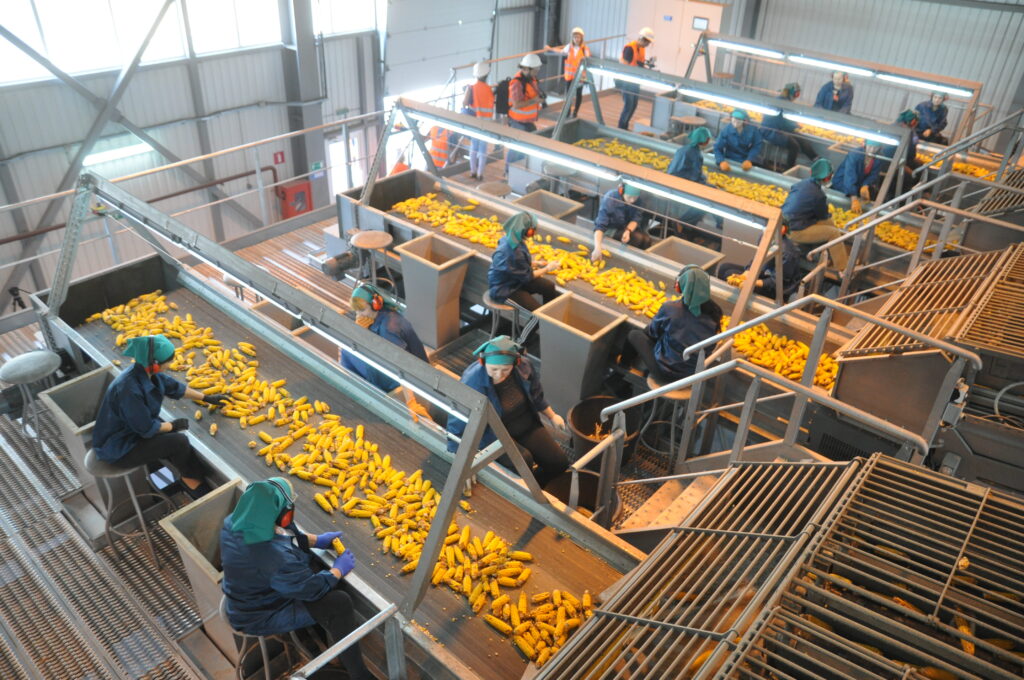As Ukrainians brace for another challenging winter amidst the ongoing war and prolonged power outages, businesses across the country are preparing for disruptions. With Russian forces continuing large-scale attacks on Ukraine’s energy infrastructure, the cold months could bring electricity shortages lasting 14-16 hours a day.
The energy crisis affects all sectors of the economy, but the impact is particularly severe on agribusiness, one of the key contributors to the state budget. Seed producers, in particular, are under pressure, as proper storage conditions are crucial for their products. Unreliable power supplies can lead to significant losses. As a result, companies must not only adjust their operations but also become more flexible in production and logistics, all while bearing substantial additional costs.
So, how are seed companies preparing to manage these blackouts? Seed World Europe spoke with representatives of two Ukrainian seed companies, LNZ Group and TVK Seed Agrocompany, to see how they were coping with these hurdles.

Planning, Energy Efficiency, and Alternative Power Sources
The experience of companies shows that planning is the cornerstone of maintaining business continuity. This involves considering all possible scenarios, equipping employees with clear action plans, and securing independent power sources well in advance.
LNZ Group, an agro-holding specializing in grain and seed production, has developed a comprehensive approach to ensure business efficiency. The company has adjusted work schedules to align with predicted outages, minimizing their impact on employee productivity.
In cases of emergency shutdowns, generators are switched on to ensure continuous power supply to offices and storage facilities, allowing employees to work without interruptions. The company has also invested in alternative energy sources, ensuring that all essential equipment and communication systems stay operational during blackouts.
A similar approach has been adopted by TVK Seed Agrocompany. The company developed a detailed blackout contingency plan aimed at minimizing disruptions to production. Employees have undergone training to respond quickly to outages and are well-prepared to use backup power systems.
As the ‘season’ of acute electricity shortages began, the company introduced energy-efficient equipment, reducing overall energy consumption and reliance on the power grid. Critical equipment is now connected to uninterrupted power supply (UPS) units. Additionally, generators have been installed to provide autonomous power, automatically activating during outages.
Currently, the company also uses alternative energy sources. Solar panels equipped with batteries now supply energy during blackouts. Looking ahead, the company plans to install wind turbines, which could become a vital energy source, especially during the shorter, darker days of winter.

Employee Adaptation
The management of TVK Seed Agrocompany has developed an action plan for its employees in case of blackouts, prioritizing the most important tasks. The company has introduced shift schedules to ensure that part of the team is always available online. Employees are equipped with laptops, power banks, and mobile internet access. By leveraging the latest technology, such as cloud services, the team can securely store and exchange data while working remotely from any location.
At LNZ Group, all office and warehouse facilities are equipped with generators, ensuring that employees don’t face power outages during working hours. This allows them to perform their tasks without interruptions. Field employees are also provided with laptops featuring extended battery life.
How Crisis Experience Transforms Business Approaches
Reflecting on their experiences during blackouts, company management mentions not only the losses but also the valuable lessons gained. Among the most important is the improvement of crisis management skills. Teams have learned to always be prepared and act efficiently in emergency situations, developing step-by-step action plans in advance, whether for evacuation or preserving crops.
Since the onset of prolonged power outages, risk diversification has reached a new level. Reducing reliance on a single income source or supplier and spreading resources and investments across different sectors or products has become essential.
Businesses have also reassessed the importance of reserves. Stockpiling materials, feed, seeds, and fuel helps them endure periods of rising prices and supply disruptions, whether due to shortages of raw materials or electricity.
In times of energy uncertainty, businesses cannot afford to let their finances fall into disarray. Maintaining healthy financial conditions, including liquidity and minimal debt, helps companies weather the crisis.
Investment in new technologies, such as automation, digitalization, and innovative data processing methods, has proven essential during prolonged blackouts.
During instability, a company’s reputation as a reliable partner becomes an invaluable asset. Strong relationships with suppliers, buyers, and other partners ensure support and assistance during tough times.
Qualified personnel also play a critical role. Energy instability in the country has been compounded by a significant shortage of specialists due to the mass migration of Ukrainians abroad and mobilization efforts. Therefore, maintaining employee motivation and engagement is crucial to keeping productivity high.

Final Thoughts
According to the theory of evolution, it is not the largest or strongest that survives, but the one that adapts. The experience of Ukrainian companies confirms this. Success lies in effective management, the ability to adapt quickly to sudden changes, and flexibility in decision-making. Risk diversification and sound financial planning are also vital, especially when facing unpredictable expenses on a near-daily basis.
Modern technologies and digital tools, which may seem ‘out of place’ at first glance, have been instrumental in helping businesses adapt and reduce dependence on traditional energy sources. Today, Ukrainian agribusinesses prioritize backup energy solutions at every level — from households to large enterprises.
In our view, this combination of measures forms the foundation of the Ukrainian approach, where companies have not only survived but remained competitive and focused on future growth.











